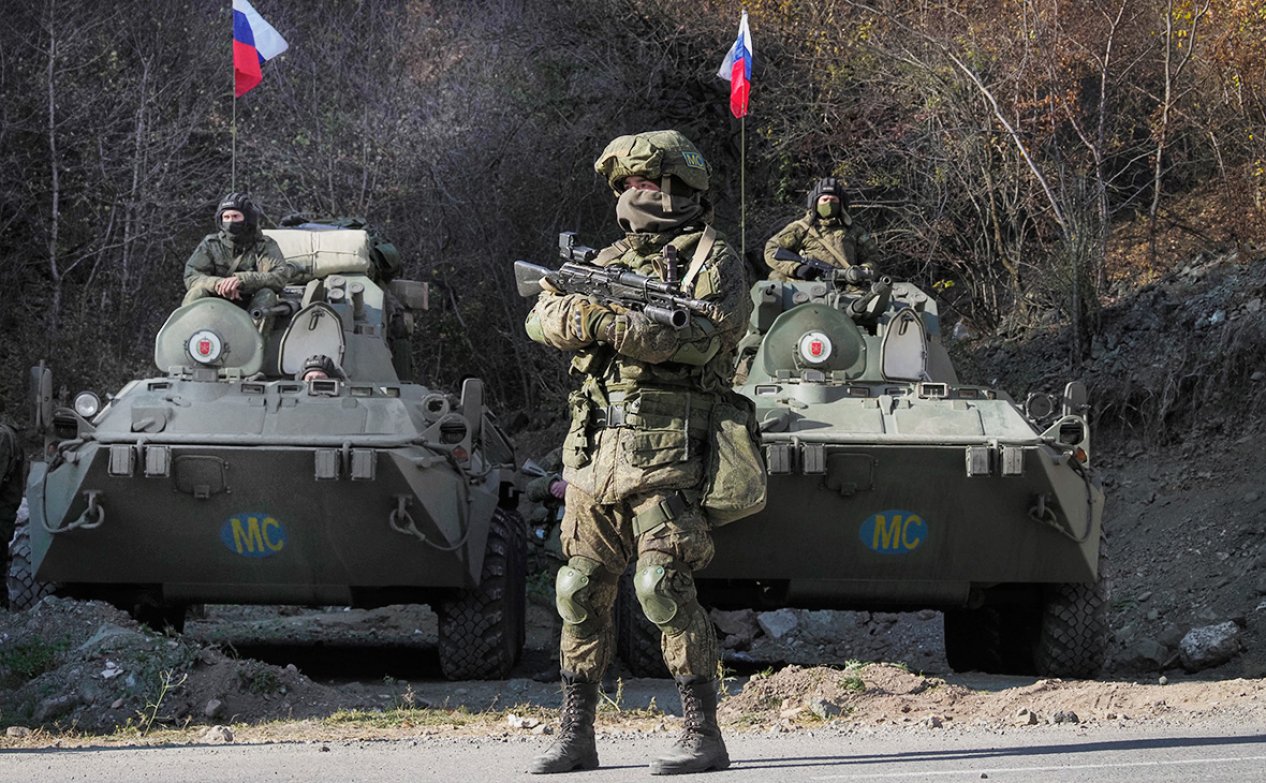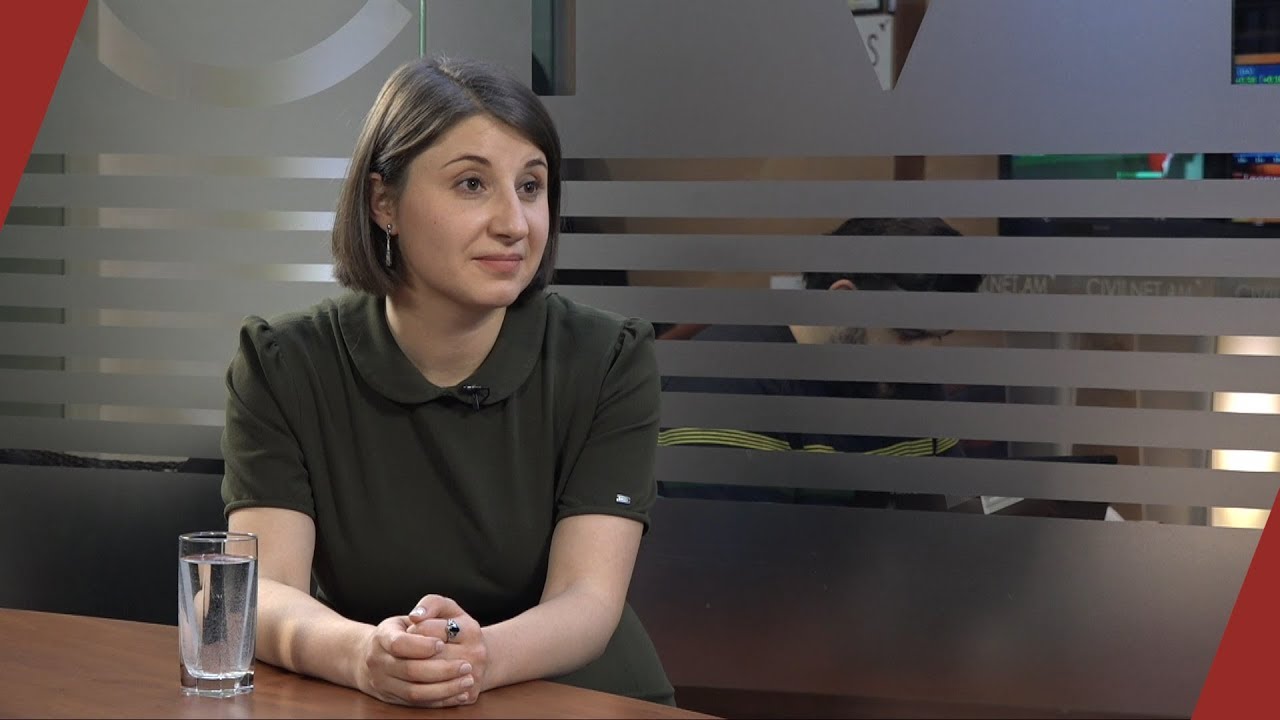
“Baku doesn’t sign the mandate of the Russian peacekeeping mission, and the mandate of the peacekeepers is important because during these five years questions may arise, and everyone will appeal to the peacekeepers,” Olesya Vartanyan, an analyst of the International Crisis Group, said in an interview with the Armenian CivilNet.

She said that people are busy building new military positions, digging trenches, and this is happening on both sides ‘and, probably, this process will continue.’
“In Nagorno-Karabakh, there is no feeling that the war is over. If you look at what is happening there, new front lines appear. Soon we will observe how big militarization will take place along these front lines,” said Olesya Vartanyan.
To begin with, firstly, the Russian peacekeeping mission can be called a “local peacekeeping mission” that is carried out in the absence of a UN mandate or other regional organization on the basis of bilateral or multilateral international treaties and agreements. The trilateral statement signed by the Presidents of Azerbaijan, Russia and the Prime Minister of Armenia on November 10, 2020 specifically reflects the responsibilities and powers of the Russian peacekeeping contingent. Thus, this joint statement is the legal basis for the deployment of Russian peacekeepers in Nagorno-Karabakh. The peacekeeping mission is deployed in Karabakh with a clear and specific goal: to facilitate the implementation of the tasks set out in the joint statement of the heads of state.
Secondly, according to paragraph 4 of this document, the peacekeeping contingent of the Russian Federation is deployed in parallel with the withdrawal of the Armenian armed forces, not the Armed Forces of the Republic of Armenia, but the Armenian armed forces. According to the analyst of the International Crisis Group Olesya Vartanyan, it turns out that some armed Armenian formations have launched a vigorous activity in the zone of responsibility of the Russian peacekeepers: they are building new military positions, digging trenches, etc., which undoubtedly raises serious questions. Why are these people, regardless of their status, doing military engineering work in the sovereign territory of Azerbaijan, which is temporarily under the control of the Russian peacekeeping contingent?
That is, in front of the peacekeeping contingent of the Russian Federation, which has 18 permanent observation posts, comprehensive engineering support measures are being taken, favorable conditions are created for the deployment of troops, keeping them ready to perform combat missions, weapons and equipment. It is quite logical that these works are carried out not by civilians, but by the Armenian military.
The withdrawal of any Armenian armed forces is a prerequisite for the trilateral Statement of the President of the Republic of Azerbaijan, the Prime Minister of the Republic of Armenia and the President of the Russian Federation dated November 10. This is written in paragraph 4 of the document.
According to the logic of the trilateral Statement, no armed Armenian formations should have remained in Karabakh. It turns out that they not only stayed there, but as it turns out, they received help from Armenia more than once.
Thirdly, the peacekeepers deployed along the Lachin corridor and in a number of regions of Karabakh have no right to allow foreign citizens to enter the Karabakh region of Azerbaijan. According to paragraph 6 of the statement, it is the Azerbaijani side that guarantees the movement and safety of citizens, vehicles and goods in both directions along the Lachin corridor. That is, the Lachin corridor serves as a humanitarian corridor for the Armenians living in Karabakh.
Despite the specific demands of the Azerbaijani side, there have been numerous cases when Russian peacekeepers secretly let foreigners into Karabakh.
This means that the temporary control of the Lachin corridor by Russian peacekeepers led to the violation of Azerbaijan’s sovereign rights. Azerbaijan wants and should have information about persons entering the world-recognized borders of Azerbaijan. According to Article 12 of the Law of the Republic of Azerbaijan ‘On the State Border’, foreigners and stateless persons who have valid documents for crossing the state border of the Republic of Azerbaijan cannot be allowed to cross the state border if there are grounds provided by law.
Again, the responsibilities of the Russian peacekeeping forces include not only preventing the penetration of Armenian military personnel into the territory of Karabakh, but also ensuring the withdrawal of the Armenian military who remained there. Nevertheless, this commitment of Moscow is not being fulfilled. This is evidenced by numerous videos of ordinary users.
Fourth, at the everyday life level, among the Russian military in Karabakh, there is an unbiased attitude towards the Armenian residents of the region, which clearly contradicts the very philosophy of peacemaking, which requires its participants to have an equidistant attitude towards the warring parties, which indicates their bias. Such videos are quite common on social media resources.
From the above-mentioned facts, we can conclude that, in all likelihood, Baku doesn’t sign the mandate of the Russian peacekeeping mission because Russian peacekeepers not only fail to comply with the provisions of the trilateral statement, but also violate the commitments arising from this document in various situations.




















